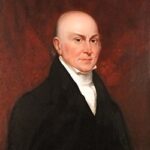The 1824 presidential election created unprecedented political chaos in American history. No candidate secured the required electoral majority. Andrew Jackson led with 99 electoral votes. John Quincy Adams followed with 84 votes. Henry Clay and William Crawford trailed behind.
The Corrupt Bargain Decision
The House of Representatives decided the election under the Twelfth Amendment. Clay held enormous influence as House Speaker. He controlled several state delegations. Clay threw his support behind Adams despite Jackson’s popular vote lead. Adams won the presidency on February 9, 1825. ⚠️
Clay’s Controversial Appointment
Adams immediately appointed Clay as Secretary of State. The position traditionally led to the presidency. Clay accepted the role on February 28, 1825. Critics immediately cried foul over the corrupt bargain. Jackson’s supporters felt betrayed by the apparent deal. 💰
Political Firestorm Erupts
The appointment created a massive political scandal. Newspapers across the nation condemned the decision. Clay’s reputation suffered permanent damage. Adams faced legitimacy questions from day one. The corrupt bargain became a rallying cry for opponents. 🔥
Impact:
The corrupt bargain allegations devastated Adams’s presidency before it began. His administration never recovered from the legitimacy crisis. Jackson’s supporters organized immediately for the 1828 election.
Immediate Political Consequences
Adams lost crucial political capital with Congress. Opposition Democrats blocked his legislative agenda. The corrupt bargain became their primary attack line. Adams struggled to pass major domestic initiatives. His presidency became largely ineffective. 📉
Rise of Jacksonian Democracy
The controversy energized Jackson’s political movement. Democratic organizers used the corrupt bargain as proof of elite corruption. They portrayed Jackson as the people’s champion. The scandal helped create the modern Democratic Party. Jackson won decisively in 1828. 🔥
Clay’s Damaged Legacy
Clay’s political career never fully recovered from the scandal. He lost three subsequent presidential campaigns. The corrupt bargain haunted his political ambitions. Despite his legislative accomplishments, the controversy overshadowed his legacy. Clay became known as much for this decision as his statesmanship.
Long-term Democratic Impact
The scandal marked a turning point in American politics. It accelerated the decline of elite political arrangements. Popular democracy gained strength nationwide. The corrupt bargain became a cautionary tale about political deals. 🌍
